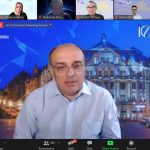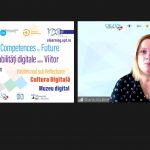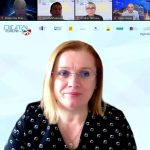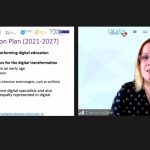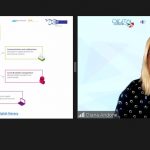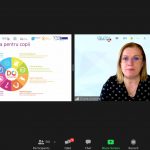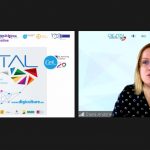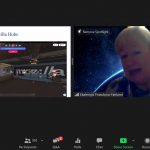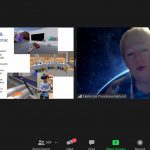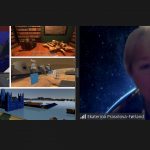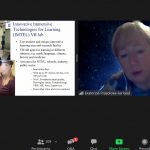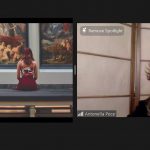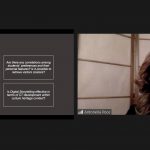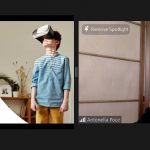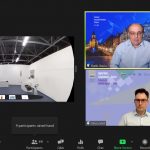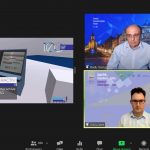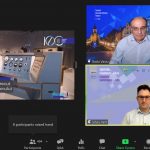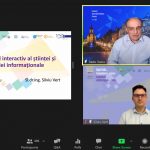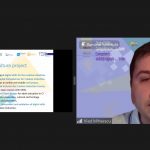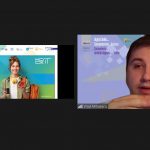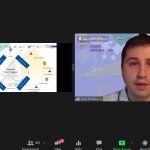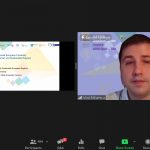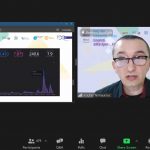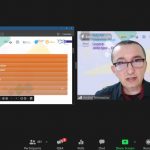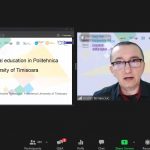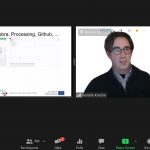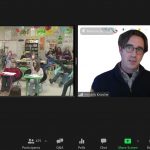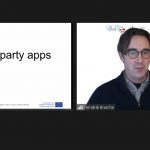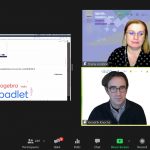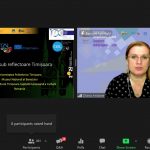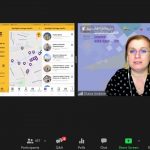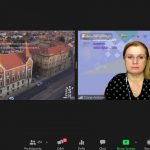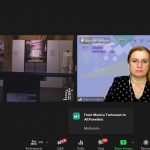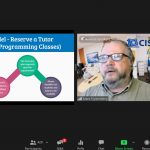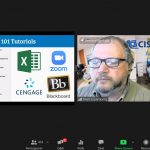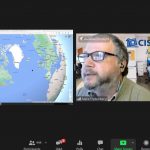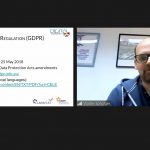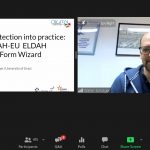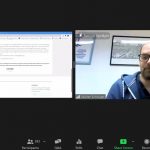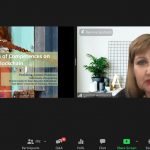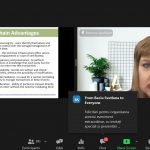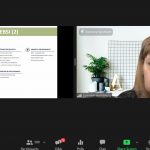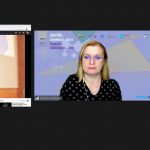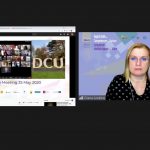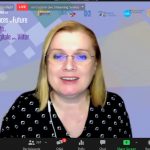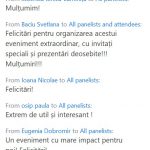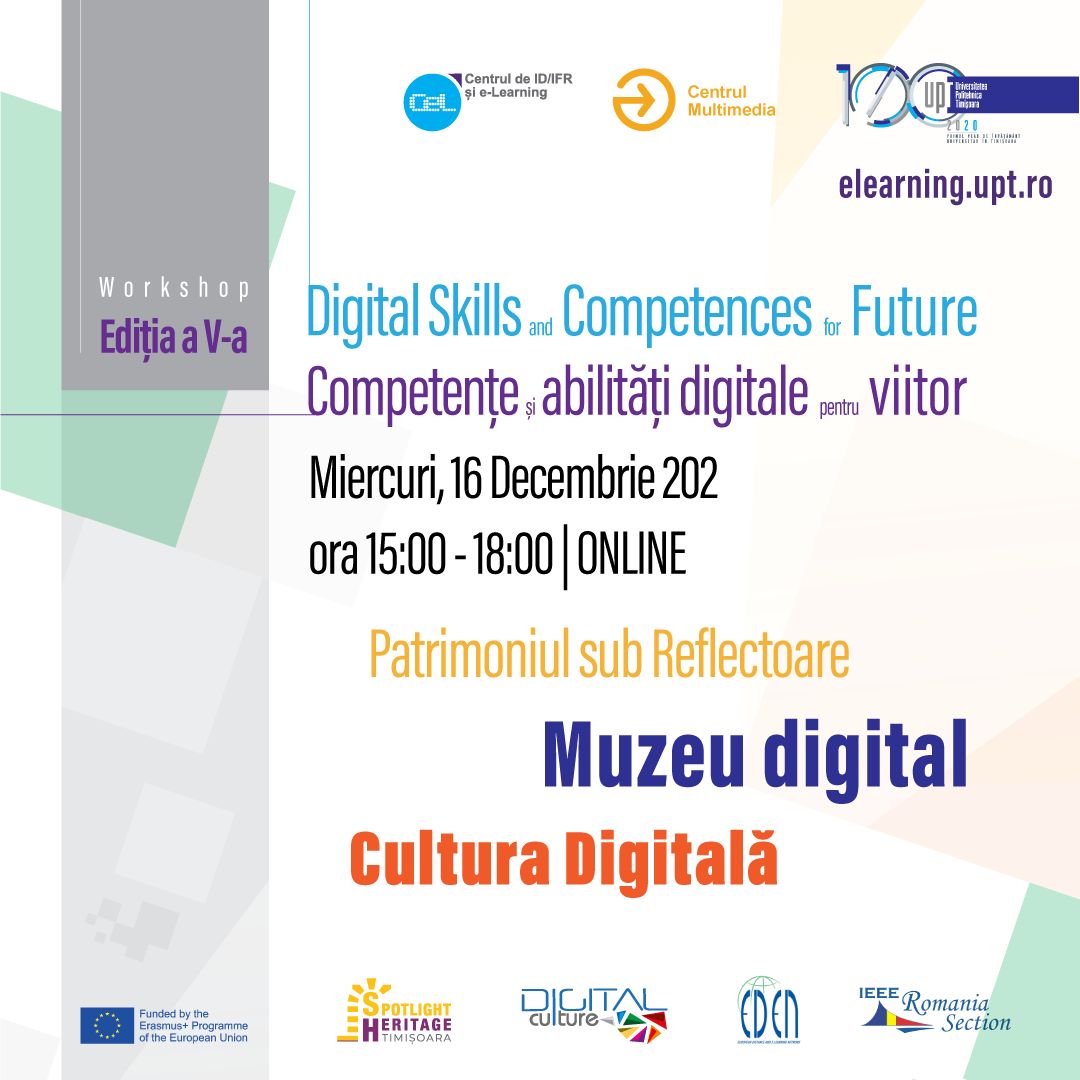
The 5th edition of the Digital Skills and Competences for Future Workshop
What are digital skills and competences, and how can they be integrated into education and the creative industries? In a period when educational institutions and cultural activities have moved mainly in the online, digital skills and competences become a "must-have" for the society of the future.
The 5th edition of the international Digital Skills workshop took place online on Wednesday, December 16, at 15:00 and brought practical examples of the use and integration of digital elements, web, mobile, and virtual reality applications (AR & VR) in education, culture and in the promotion of cultural heritage and creative industries.
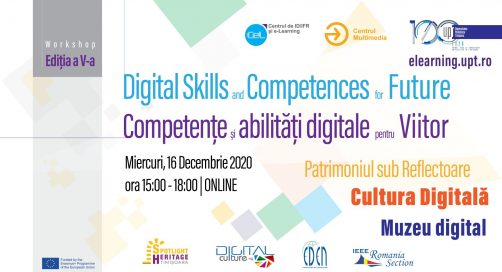
The attendance was free, the presentations were held both in Romanian and English and a certificate of attendance was issued.
With international speakers from the USA, Europe, and Romania, the workshop was addressed to all actors in the field of education and creative industries, students, university professors, and the general public.
With over 1500 registrations and over a thousand participants, the workshop was a real success for digital education.
The experts shared their practical experience about digital education and provided recommendations to participants for improving their digital skills, encouraging the development of a high-performance digital education ecosystem.
Prof. univ. dr. Radu Vasiu , President of the UPT Senate and director of the Multimedia Centre, opened the event. Then, Dr. Diana Andone , Director of CeL, took the floor and explained the importance of digital transformation, talking about the EU Action Plan for Digital Education (2021-2027).
Dr. Diana Andone emphasized the importance of lifelong learning, skills development, and the need for digital intelligence in the future.
Prof. dr. Ekaterina Prasolova-Førland was the next speaker - who spoke to the participants about immersive learning in the context of COVID-19 - the most current topic in recent times, in all spheres, but especially in education. She presented practical examples of integrating AR & VR elements in education and their benefits during the pandemic period.
The following speaker, named prof. dr. Antonella Poce spoke about the development of transversal skills in VR heritage environments, focusing on young people and the efficiency of digital stories and digital museums to develop critical thinking in a context of cultural heritage.
Prof. Dr. Eng. Radu Vasiu , along with Sl. dr. eng. Silviu Vert presented one of the top projects in Timisoara, namely - Interactive Digital Museum of Information Science and Technology , talking about the project's purpose - educating and attracting young people to the latest information technologies.
Interactive Digital Museum of Information Science and Technology
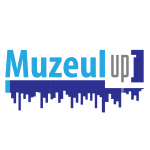
Interactive Digital Museum of Information Science and Technology - another example of a concept in which the premieres of Timisoara technology, as well as the latest information on cutting-edge technology, are combined in a virtual space through a web application that integrates 3D simulations, elements of virtual reality, virtual and interactive tours - in order to educate and attract young people to STEM education.
The series of Timișoara and international projects on digital skills, developed within the e-Learning Centre and the Politehnica University of Timișoara, was continued by Sl.dr.eng. Vlad Mihăescu , who presented the ongoing actions, but also the latest projects. All these projects are based on the purpose and mission - to develop and improve digital skills and competences for digital transformation.
Sl. dr. eng. Andrei Ternauciuc , talked about the impact of digital education in the Politehnica University of Timișoara and the critical element for good development of teaching activities, especially in the current context.
Andrei presented the CVUPT platform, based on Moodle, explaining its functionality and how it made possible online education exclusively in the university during this period.
One of the most interactive presentations was given by assoc. prof. Hendrik Knoche . He spoke about the launch of digital courses; his presentation was followed by a practical session through which participants could test live using such a platform.
Spotlight Heritage Timișoara
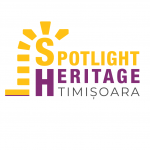 A point of interest of the workshop was represented by the Spotlight Heritage Timișoaraproject's presentation by Diana Andone. This project can be a case study, both for actors in culture and those in education and creative industries. The project combines concepts of digital heritagepromotion, with integration in web, mobile and augmented reality applications,but also ways to cultural involvement of communities and education of young people.
A point of interest of the workshop was represented by the Spotlight Heritage Timișoaraproject's presentation by Diana Andone. This project can be a case study, both for actors in culture and those in education and creative industries. The project combines concepts of digital heritagepromotion, with integration in web, mobile and augmented reality applications,but also ways to cultural involvement of communities and education of young people.
The next speaker, dr. Mark Frydenberg , took the audience for a "walk" through a series of activities carried out during the ten years of CIS SandBox, activities based on digital technologies.
Assist. dr. Walter Scholger showed the participants how to put into practice theories for data protection, the expert then presenting them with the ELDAH consent form.
Prof.dr.eng. Carmen Holotescu - explained to the audience about Blockchain technology and the certification of competencies on Blockchain, about the multiple possibilities of integrating this technology in the cultural field and its use in a series of European projects.
At the end of the workshop, the Digital Culture project team - represented by Diana Andone, made a brief introduction about the project and its mission; the event ended with a practical activity for participants and a series of free discussions on future technologies presented.
Dozens of questions and messages of appreciation were addressed to the presenters. The participants expressed their interest and gratitude for the topics presented.
This workshop's presentations are part of the Erasmus + DigiCulture project's strategy - Improving Digital Skills and Improving the Social Inclusion of Adults in the Creative Industries to build a free online course.
The event was organized by the ID / IFR and e-Learning Centre, with the support of the EDEN International Association and IEEE Romania.
Agenda
15:00 -15:05: Prof. Dr. Eng. Radu Vasiu, President of the Senate, Polytechnic University of Timisoara
Welcome and introduction
15:05 – 15:20: Dr. Diana Andone, director of CeL, Polytechnic University of Timisoara
Digital skills for the future
15:20 – 15:40: Prof.dr. Ekaterina Prasolova-Førland, Head of IMTEL research group and lab, Department of Education and Lifelong Learning, Norwegian University of Science and Technology
Immersive learning in the context of COVID-19 / Immersive learning in the context of COVID-19
15:40 – 16:00: Prof.dr. Antonella Poce, Head of the Center for Museum Studies, Università Degli Studi Roma Tre
Development of transversal competencies in VR heritage environments / Cross sectional skills development in VR Heritage Environments
16:00 – 16:15: Prof. Dr. Eng. Radu Vasiu & Ș.l. Dr. Eng. Silviu Vert, Politehnica University of Timișoara
Interactive Digital Museum of Information Science and Technology / Interactive Digital Museum of information Science and Technology
16:15 – 16:25: Dr. ing. Vlad Mihăescu, Politehnica University of Timișoara
Digital skills projects of the Polytechnic University of Timisoara / Digital competences projects of Politehnica University of Timisoara
16:25 – 16:35: Șl. Dr. Eng. Andrei Ternauciuc, Politehnica University of Timișoara
Impact of digital education in the Polytechnic University of Timisoara / Impact of digital education in the Polytechnic University of Timisoara
16:35 – 16:50: Assoc.prof. Hendrik Knoche, Aalborg University
Launch of digital courses / Rolling out digital courses
16:50 – 17:05: Dr. Diana Andone, director of CeL, Polytechnic University of Timisoara
Heritage under spotlights / Spotlight Heritage Timisoara
17:05 – 17:20: Dr. Mark Frydenberg, Director CIS Learning and Technology Sandbox, Bentley University
10 years of CIS SandBox / 10 years of CIS SandBox
17:20 – 17:35: Assist. dr. Walter Scholger, Karl-Franzens-Universität Graz
Putting data protection into practice: The ELDAH Consent Form Wizard
17:35 – 17:50: Prof.dr.ing. Carmen Holotescu, Ioan Slavici University
Blockchain skills certification / Blockchain skills certification
17:50- 18:10: Project team Digital Culture, DigiCulture Courses
Introduction and practical activity / Intro & hands-on activity
Watch the full event below:
Speakers

Diana Andone
Dr. Andone runs the team who developed the university’s award winning Virtual Campus CVUPT and is also a professor at the Politehnica University of Timișoara, Romania, in the area of multimedia and web technologies. She is passionate about the ubiquitous access to technologies and how they can be used to improve people’s lives. Dr. Andone research includes web and mobile technologies, human-computer interaction, AR/VR/XR in education and culture, open education, online and mobile learning, OERs and MOOCs. Her publication list comprises 12 books and over 100 papers presented at international conferences, 9 best paper awards, reviewer of several journals and conferences, and also chairs IEEE and ACM conferences. Her experience includes over 30 European funded projects, out of which she coordinated 6, notably ViCADiS (Virtual Campus for Digital Students), DigiCulture (Digital Skills for Creative Industries). She is also involved extensively in several professional organisations and associations (EDEN, IEEE, IADIS, AACE, W3C, IAFES), actively supports the local start-up movement (StartUp Weekend, HackTM, hackathons, CoderDojo) and Girls in Tech, as well as acting in the Board of local Romanian NGOs (Pentru Voi Foundation) in the Timisoara 2021 European Capital of Culture Task Force and a member of Rotary Club Timisoara (past president) and Rotary International.
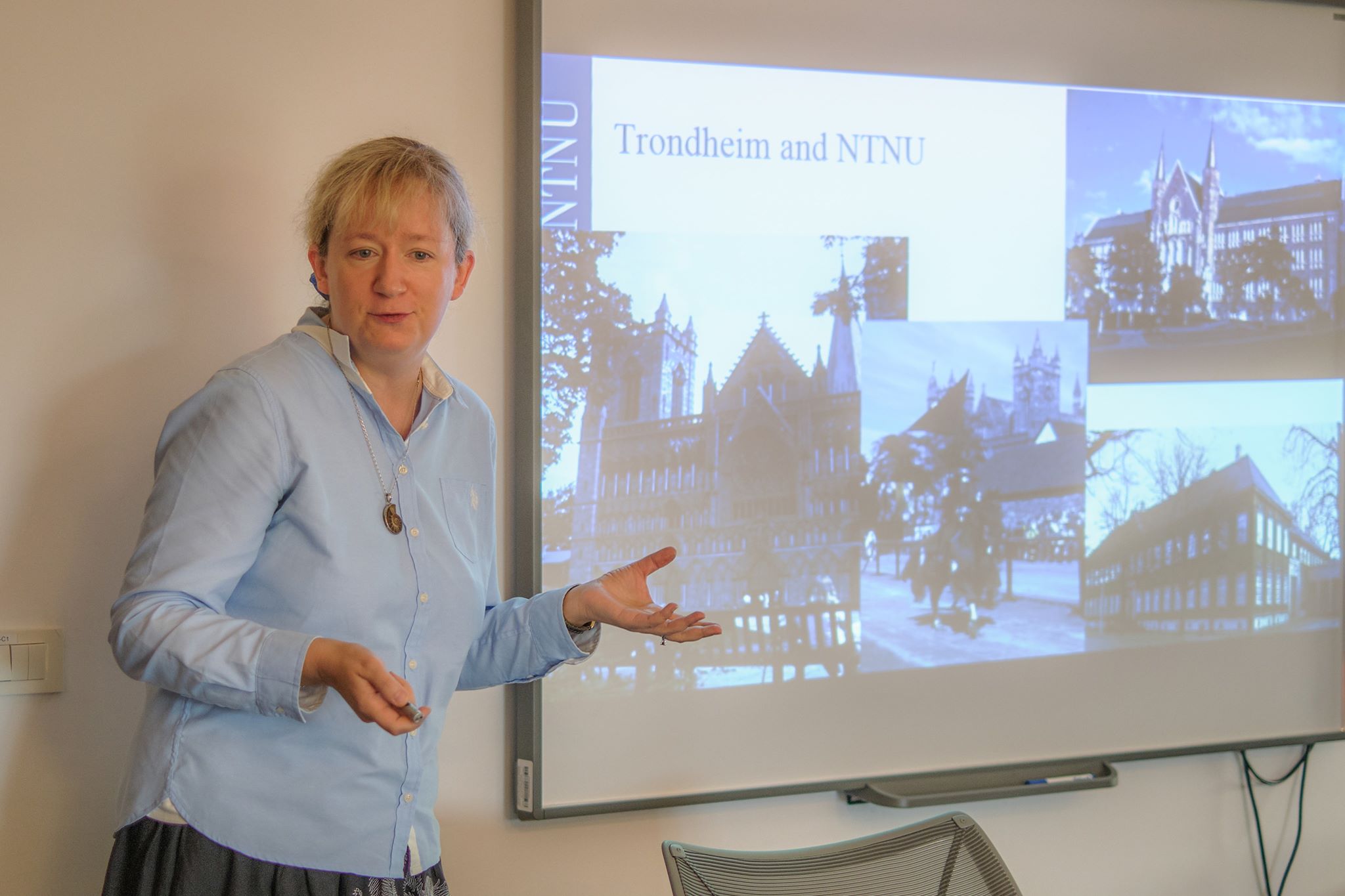
Ekaterina Prasolova-Førland
Ekaterina Prasolova-Førland is full Professor, Head of Innovative Immersive Technologies for Learning (IMTEL) research group and lab at the Norwegian University of Science and Technology and board member of XR Norway. She has over 100 publications in the field of immersive tech for learning, being involved in developing educational XR simulations for a wide range of stakeholders, from aquaculture industry and hospitals to the Norwegian Armed Forces and Labour and Welfare Administration. NTNU is the leading technological university in Norway. IMTEL group researches innovative immersive technologies for learning in several contexts, ranging from university education to emergency and medical training and workplace training. The group has founded and actively uses IMTEL VR lab at Dragvoll campus. The lab is a top-modern and unique research facility devoted to educational immersive technologies without equal in Norway. The lab serves as a hub for cross-disciplinary education and research activities.

Antonella Poce
Antonella Poce is a full-time researcher in experimental pedagogy at the University Roma Tre Department for Educational Design. After the Ph.D. in Innovation and evaluation of the educational system, she obtained a post-doc scholarship to carry out research work on the evaluation of e-learning models in university didactics. Her research concerns innovative teaching practices in higher education at the national and international level. In 2008, she was awarded as New Researcher of the year by Aea-Europe. She used to be a member of the Aea-Europe subcommittee for Professional Development from 2009 to 2012. She has been elected as council board member in June 2012. As a researcher, she participated in different European projects and she was co-manager in the Tempus DEMED – DEvelopment of Master study programmes in EDucation – project (2009-2011.) She coordinated the following departmental projects: Podcasting as a teaching and learning tool (2011); Contributions for the definition of a critical technology (2012-2013). She is co-director of the international post graduate course Standards for Museum Education based at Roma Tre university. She is member of the Evaluation Committee based at Suor Orsola Benincasa University in Naples. She is author of different publications on the employment of innovative didactic tools in higher education.
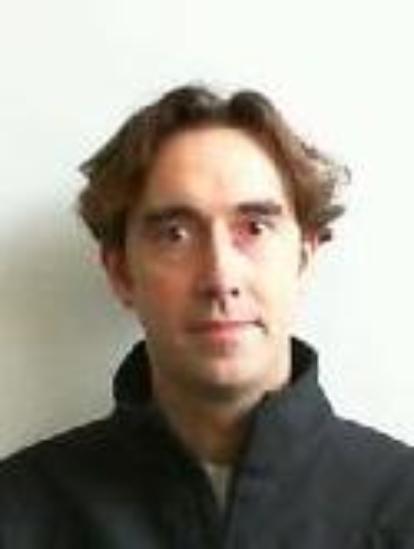
Hendrik Knoche
Hendrik Knoche (MSc, PhD CS), Assistant Professor, Department Architecture Design and Media Technology, Aalborg University, Hendrik has worked on interaction design and user experience both on desktop and mobile devices for more than ten years in industry and academia in various domains including games, mobile social networking, automated content adaptation, video quality. His research interests include human-centered design, mediated experiences, and ICT for inclusion, rehabilitation and development, and methods for prototyping and evaluating applications along with understanding and modeling their user experiences “in the wild”. To this end, he’s working on user adaptable interactions and experiences based on multi-modal usage models and user data including e.g. interaction and game metrics, physiological data and eye-tracking.

Radu Vasiu
Prof.Dr.Eng. Radu Vasiu is President of the Senate of the Politehnica University of Timișoara and the Director of the Multimedia Research Center. He is also a professor at the Faculty of Electronics, Telecommunications and Information Technologies of the Politehnica University of Timișoara. His recent research focuses on e-learning, multimedia, web technologies, open data and smart cities. He has published 12 books and presented over 100 papers at various international conferences. He has participated in 28 international research and cooperation projects and is part of 7 international professional associations.
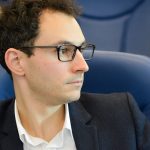
Silviu Vert
Șl.dr.ing. Silviu Vert is lecturer teacher at the Department of Communications at the Faculty of Electronics, Telecommunications and Information Technologies of the Politehnica University of Timișoara. He has experience in supporting applicative activities with students, in fields such as object-oriented programming (OOP), multimedia technologies, as well as other modern information technologies. He finished his PhD in 2015, among his professional interests, including open data, augmented reality technologies and smart cities.
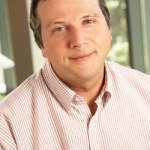
Mark Frydenberg
Mark Frydenberg is a Senior Lecturer at Bentley University, USA a successful author of the Cengage Learning book series. Mark's professional interests include the use of technology in education. He is the Director of the CIS Learning and Technology Sandbox (http://cis.bentley.edu/sandbox) and is a frequent speaker at web 2.0 technology conferences.
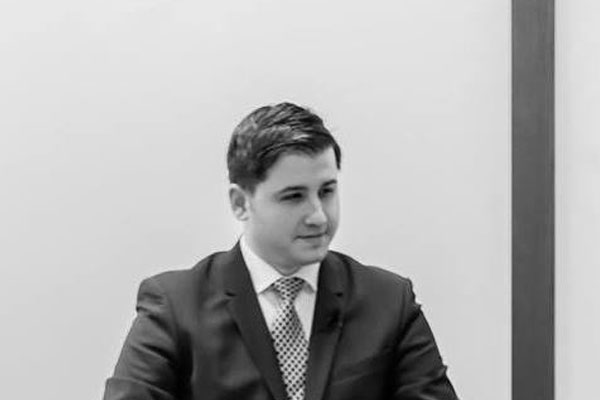
Vlad Mihăescu
Vlad Mihaescu has a Ph.D. in educational and technological models of MOOCs and has more than 10 years’ experience as a trainer and teacher in areas like multimedia technologies, social media, e-tourism, e-learning, usability, programming, soft skills, and leadership. Author of over 25 scientific papers and book chapters published in international conferences and journals, Vlad is involved in several European research projects in the field of eLearning. He is also a lecturer for UPT. In 2020 he was elected as the new Chair of the EDEN Network of Academics and Professionals (NAP) Steering Committee. Vlad as the Chair of the EDEN NAP Steering Committee at the same time is ex officio a member of the EDEN Executive Committee. Vlad is involved in the activities of the Student Entrepreneurial Society from UPT.
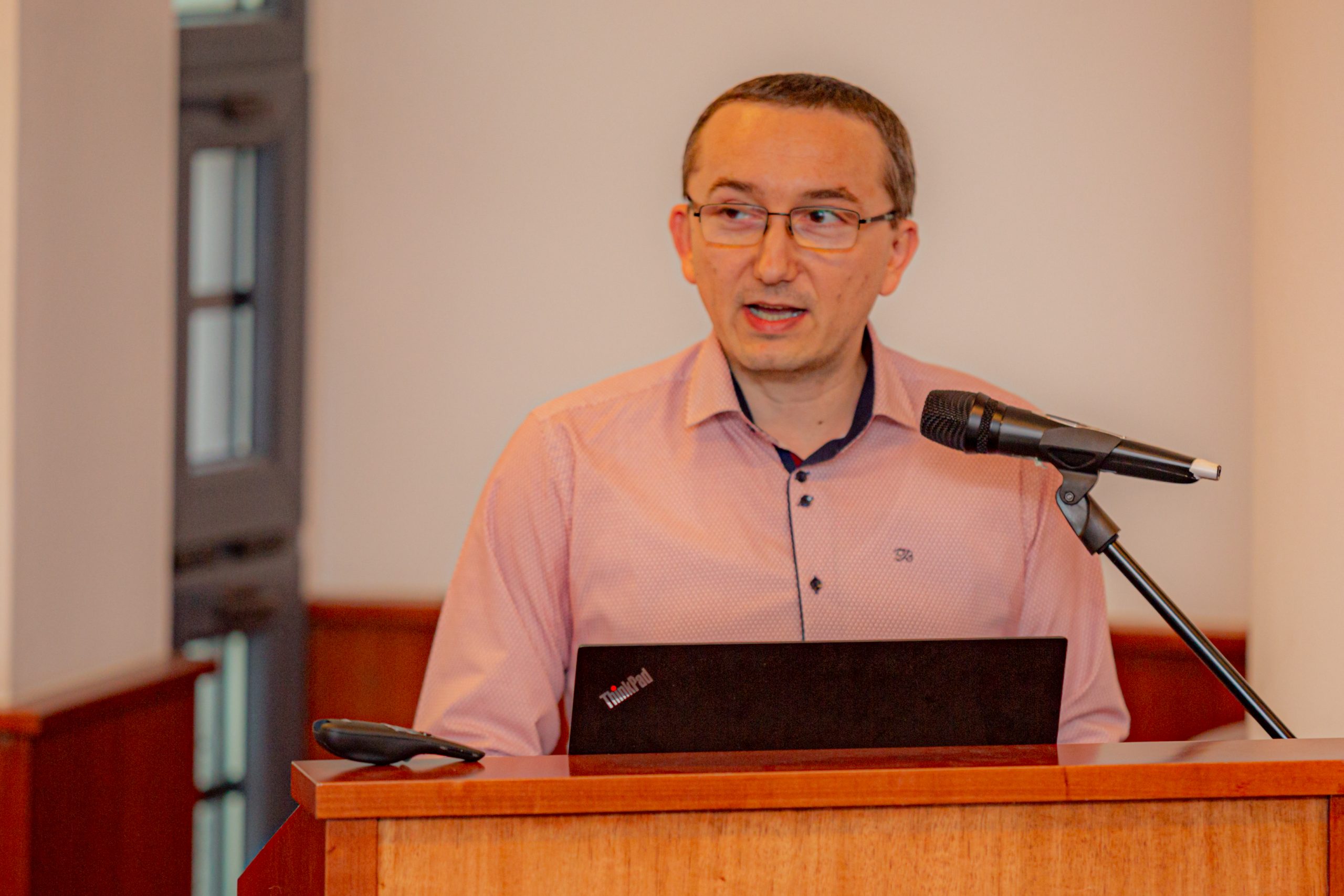
Andrei Ternauciuc
Dr. Andrei Ternauciuc is lecturer teacher at the Department of Communications at the Politehnica University of Timișoara, but also one of the technical administrators of the UPT Virtual Campus - the official platform for e-learning of the university. He has over 10 years’ experience in working with learning management systems and has contributed to the design and implementation of various e-learning platforms, including ViCaDiS - Virtual Campus for Digital Students, CVUPT, UniCampus.ro and others.

Carmen Holotescu
Carmen Holotescu is a Professor and Dean at the Faculty of Engineering, Director of the Center for Open Education and Blockchain part of the „Ioan Slavici” University of Timișoara, Romania with a PhD on new technologies and open education. She has participated in many European projects and has a rich experience in designing and implementing learning and collaborative platforms based on open pedagogies. She has written over 100 articles and chapters/books related to eLearning/Blended Learning, Social Media, Open Educational Resources (OER), Massive Open Online Courses (MOOC) and Blockchain, mentioned in more than 1,500 citations. She is an online certified instructor of the University of Maryland University College, USA, facilitating for 12 years online courses at this university.
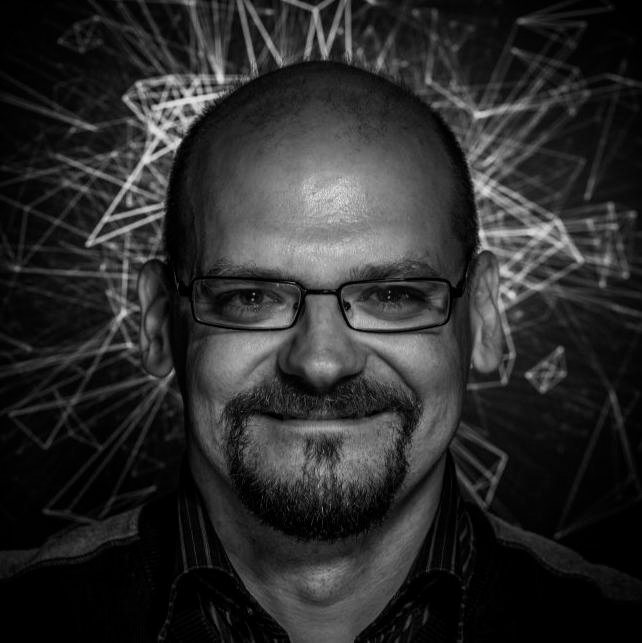
Walter Scholger
Walter Scholger studied History and Applied Cultural Sciences in Graz (Austria) and Maynooth (Ireland). He has been the Deputy Director of the Center for Information Modeling – Austrian Centre for Digital Humanites at the University of Graz (Austria) since 2008, where he is primarily dealing with administrative issues, project management and the coordination of the Centre’s teaching activities. His research focus is on legal issues (copyright, privacy, licensing) in the context of research, education and the digitization of Cultural Heritage, and Open Science and Digital Publication in general. He is involved in several international projects focusing on legal aspects of academia and digitization, and a member and co-lead of working groups of DH umbrella organizations (ADHO Digital Pedagogy SIG) dedicated to DH curricula development and issues of digital publication (DHd). A veteran contributor to DARIAH-EU, he has been active in several Working Groups, served as Co-Lead of the “Training and Education” Working Group from 2013 to 2017 and the Working Group on “Ethics and Legality in Digital Arts and Humanities” since 2017.
